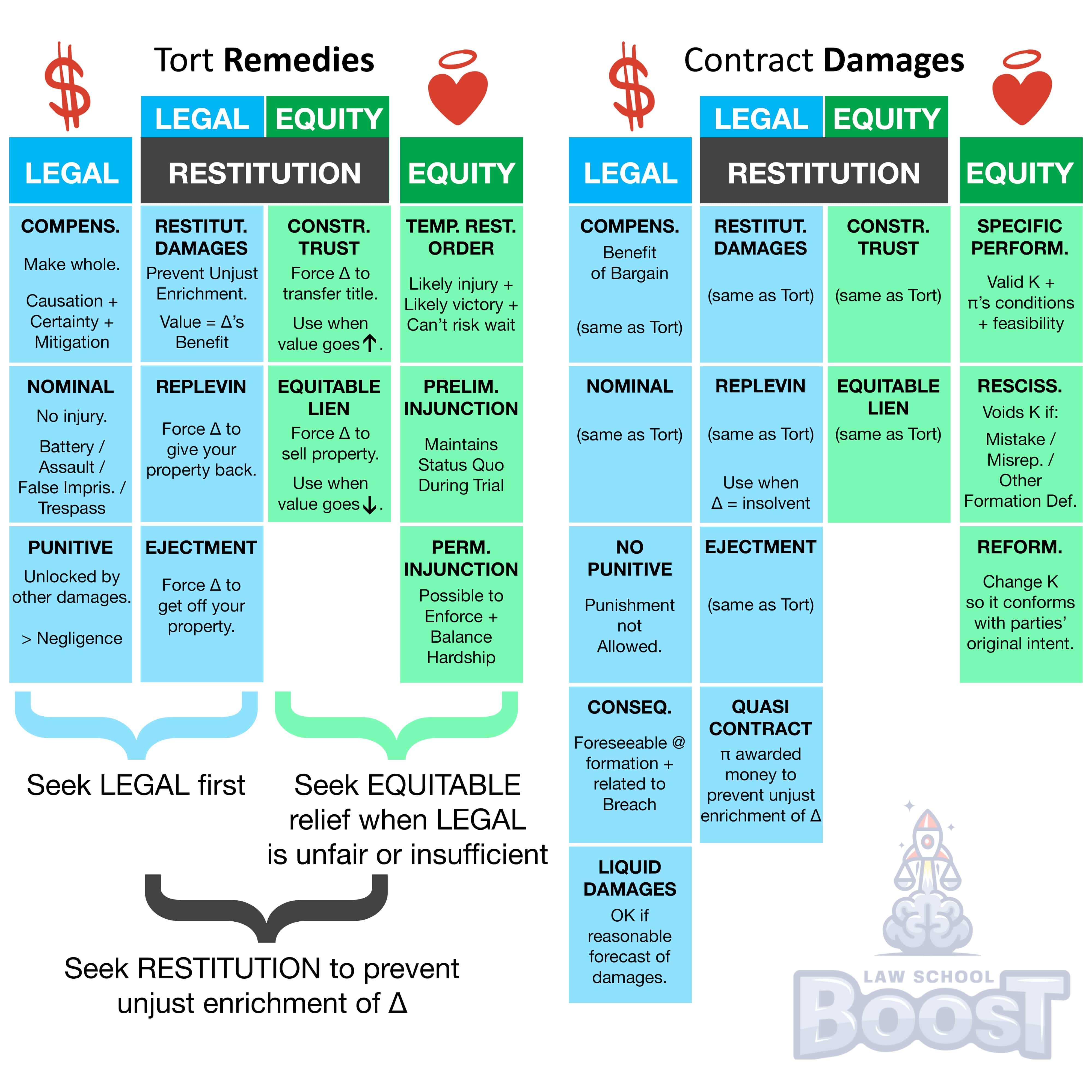🏥
Remedies • Contract - Legal Remedies
REM#045
Legal Definition
Liquidated damages are presented in certain legal contracts as an estimate of otherwise intangible or hard-to-define losses to one of the parties.
They are permissible where (1) damages are very difficult to ascertain at the time of contract formation; and (2) the damages provision was a reasonable forecast of what the damages would ultimately be.
They are permissible where (1) damages are very difficult to ascertain at the time of contract formation; and (2) the damages provision was a reasonable forecast of what the damages would ultimately be.
Plain English Explanation
Liquidated damages are like a safety net in some contracts. They're a pre-decided amount of money that one party has to pay the other if something goes wrong. This amount is set beforehand because figuring out the actual loss later can be really tricky. These damages are allowed in two situations:
(1) When it's super hard to guess how much loss will occur if the contract is broken.
(2) When the pre-decided amount seems like a fair guess of the potential loss.
(1) When it's super hard to guess how much loss will occur if the contract is broken.
(2) When the pre-decided amount seems like a fair guess of the potential loss.
Hypothetical
Hypo 1: Bob and Sam enter into a contract where Bob promises to deliver 100 custom-made widgets to Sam's company within a month. The contract states that if Bob fails to deliver on time, he will pay Sam $500 as liquidated damages because it would be hard to figure out the exact loss Sam would face due to the delay. Bob fails to deliver the widgets on time.
Result: Bob owes Sam $500 as per the liquidated damages clause in their contract.
Hypo 2: Sam hires Bob to perform at his wedding. They agree on a liquidated damages amount of $1000 if Bob doesn't show up, as it would be tough to put a price on the disappointment and last-minute changes. On the wedding day, Bob doesn't show up.
Result: Bob owes Sam $1000 because of the liquidated damages clause.
Hypo 3: Bob rents Sam's beach house for the summer. The contract has a liquidated damages clause that says if Bob breaks a vase, he pays $10,000. However, the actual cost of the vase is only $50, and it's easy to determine this value. Result: The liquidated damages clause wouldn't apply here because the damages (cost of the vase) are easy to determine and the pre-decided amount is not a reasonable forecast of the damages. Moreover, this seems more like an attempt to sneak in punitive damages, which are not allowed in contract disputes.
Result: Bob owes Sam $500 as per the liquidated damages clause in their contract.
Hypo 2: Sam hires Bob to perform at his wedding. They agree on a liquidated damages amount of $1000 if Bob doesn't show up, as it would be tough to put a price on the disappointment and last-minute changes. On the wedding day, Bob doesn't show up.
Result: Bob owes Sam $1000 because of the liquidated damages clause.
Hypo 3: Bob rents Sam's beach house for the summer. The contract has a liquidated damages clause that says if Bob breaks a vase, he pays $10,000. However, the actual cost of the vase is only $50, and it's easy to determine this value. Result: The liquidated damages clause wouldn't apply here because the damages (cost of the vase) are easy to determine and the pre-decided amount is not a reasonable forecast of the damages. Moreover, this seems more like an attempt to sneak in punitive damages, which are not allowed in contract disputes.
Visual Aids

Related Concepts
In assessing contract legal remedies, are nominal damages permitted?
In assessing contract legal remedies, are punitive damages permitted?
In assessing contract legal remedies, what are compensatory damages?
In assessing contract legal remedies, what are consequential damages?
In assessing contract legal remedies, what are expectation damages?
In assessing contract legal remedies, what are incidental damages?
What are legal remedies in contract?
What elements are required to prove legal remedies in contract?
What is the result of having a liquidated damages provision that is too excessive?


